Home

Ovulation

After How Many Days of Ovulation Implantation Occurs: The Road to Pregnancy
In this Article
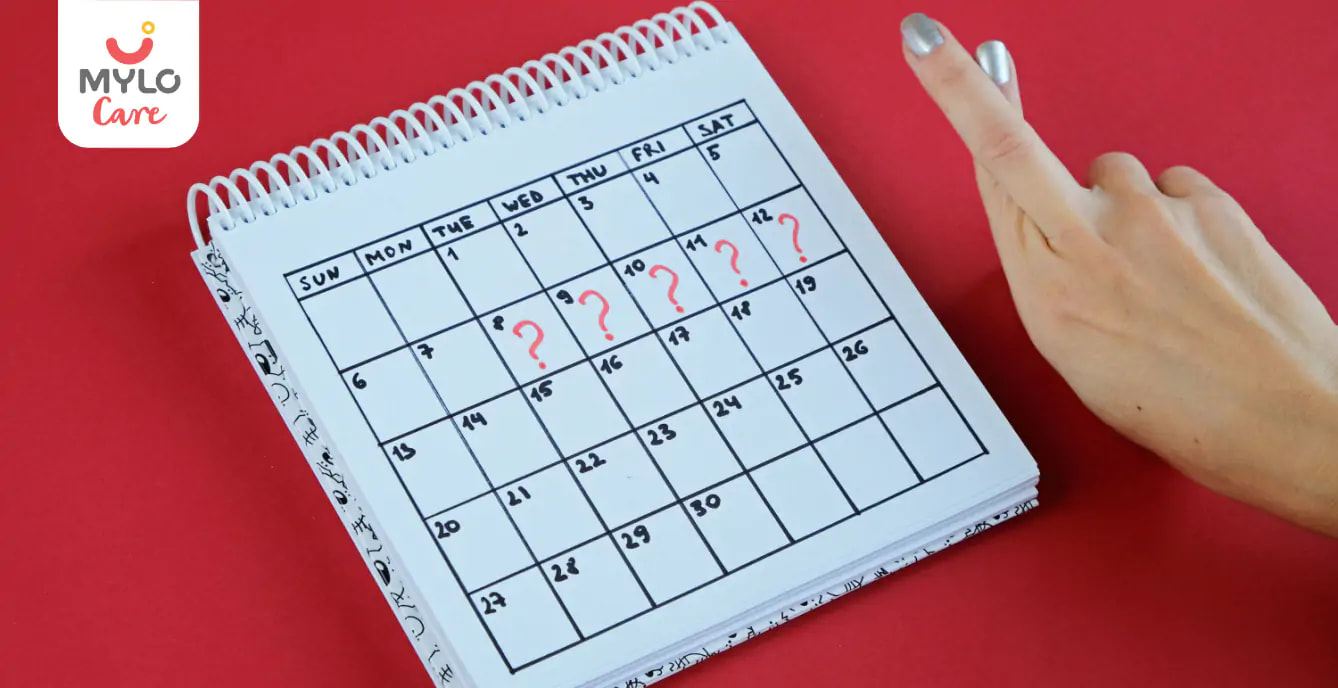
Ovulation
After How Many Days of Ovulation Implantation Occurs: The Road to Pregnancy
Updated on 27 December 2023
As couples begin their journey to conception, suddenly days and weeks find new meaning in their lives. The days leading up to ovulation and the weeks following it assume newfound importance on the road to pregnancy. Consequently, it’s normal for women who are trying to conceive to wonder after how many days of ovulation implantation occurs.
So, if you too have engaged in some baby-making session during ovulation and are now eager to know how soon can implantation occur after ovulation, then this article is for you.
Is it possible to know when implantation occurs after ovulation?
Implantation is a crucial step in the journey to pregnancy, as it is when a fertilized egg attaches itself to the lining of the uterus. Many couples trying to conceive often wonder how long it takes for implantation to occur after ovulation. While it is not possible to pinpoint the exact moment of implantation, there are some indicators that can give you an idea of when this process may take place.
One way to estimate when has implantation after ovulation taken place is by tracking your menstrual cycle. Ovulation typically occurs around 14 days before the start of your next period. After ovulation, the fertilized egg travels through the fallopian tubes and into the uterus. It then takes a few days for the egg to implant itself into the uterine lining. This means that implantation usually occurs around 7 to 10 days after ovulation.
Can sex after ovulation affect implantation?
Some couples may wonder if having sex after ovulation can affect the chances of successful implantation. While there is no definitive answer, it is generally believed that having intercourse after ovulation does not significantly impact implantation. The fertilized egg is already on its way to the uterus by the time ovulation has occurred, so the timing of intercourse after ovulation is unlikely to make a significant difference.
It's important to remember that successful implantation depends on various factors, including the health of the egg and sperm, the quality of the uterine lining, and hormonal balance. While having sex after ovulation may not directly affect implantation, maintaining a healthy lifestyle and optimizing fertility factors can increase the chances of successful implantation and pregnancy.
After how many days of ovulation implantation occurs?
Implantation typically occurs around 7 to 10 days after ovulation. However, it's important to note that this timeline can vary from woman to woman. Factors such as the length of your menstrual cycle and the timing of ovulation can influence when implantation occurs.
If you are actively trying to conceive, tracking your menstrual cycle and monitoring ovulation can help you decipher implantation days after ovulation. This can be done through various methods, such as using ovulation predictor kits or tracking basal body temperature. By identifying the timing of ovulation, you can have a better idea of when implantation may happen and plan accordingly.
After ovulation implantation symptoms
Implantation is a natural process that occurs in the body, but it may also come with some noticeable symptoms. While not every woman experiences these symptoms, some common signs of implantation include light spotting, mild cramping, and breast tenderness. These symptoms are often similar to premenstrual symptoms, which can make it difficult to differentiate between the two.
It's important to remember that implantation symptoms can vary from woman to woman, and not everyone may experience them. Additionally, these symptoms can also be attributed to other factors, such as hormonal changes or the upcoming menstrual cycle. If you suspect you may be experiencing implantation symptoms, it's best to consult with your healthcare provider for a proper evaluation.
Difference between ovulation cramps vs implantation cramps
Cramping is a common occurrence during both ovulation and implantation, but there are some key differences between the two. Understanding these differences can help you distinguish between ovulation cramps and implantation cramps.
1. Timing
Ovulation cramps typically occur around the time of ovulation, which is usually around the middle of your menstrual cycle. On the other hand, implantation cramps occur after ovulation, around 7 to 10 days before your next period is due.
2. Duration
Ovulation cramps are typically short-lived and may last for a few minutes to a few hours. In contrast, implantation cramps can last for a longer duration, ranging from a few hours to a few days.
3. Intensity
Ovulation cramps are often described as mild and may feel like a dull ache or twinge. Implantation cramps, on the other hand, can vary in intensity from mild to moderate and may be accompanied by other symptoms such as light spotting.
If you are unsure whether you are experiencing ovulation or implantation cramps, it's best to track your menstrual cycle and other symptoms to get a better understanding of your body's patterns.
Difference between ovulation bleeding vs implantation bleeding
Bleeding can occur during both ovulation and implantation, but there are some key differences to look out for. Here are three key differences between ovulation bleeding and implantation bleeding:
1. Timing
Ovulation bleeding typically occurs around the time of ovulation, which is usually in the middle of your menstrual cycle. Implantation bleeding, on the other hand, occurs around 7 to 10 days after ovulation, closer to when your next period is due.
2. Duration and flow
Ovulation bleeding is usually light and may only last for a few hours to a day. It is often characterized by spotting or light pink discharge. Implantation bleeding, on the other hand, can last for a longer duration, ranging from a few hours to a few days. It may also be lighter or heavier than ovulation bleeding, depending on the individual.
3. Color
Ovulation bleeding is typically light pink or brown in color, whereas implantation bleeding can vary in color from light pink to dark red. The color of implantation bleeding may also change over the course of a few days.
If you are experiencing any unusual bleeding or are unsure whether it is ovulation or implantation bleeding, it is recommended to consult with your healthcare provider for a proper evaluation.
You may also like: Ovulation Bleeding: The Ultimate Guide to Causes, Symptoms and Management
How soon can you test for implantation after ovulation?
Many women eagerly await the opportunity to take a pregnancy test after ovulation to see if implantation has occurred. However, it's important to note that it takes time for the pregnancy hormone hCG (human chorionic gonadotropin) to build up in the body after implantation. Testing too early may result in a false negative, as the levels of hCG may not be detectable yet.
Most pregnancy tests on the market claim to be able to detect hCG levels as early as 6 to 8 days after ovulation. However, it's important to consider the sensitivity of the test and the individual's hCG levels. Some women may have higher levels of hCG earlier on, while others may take longer to produce detectable levels.
To avoid unnecessary stress and potential false negatives, it is generally recommended to wait until your expected period date or at least a week after ovulation to take a pregnancy test. This will give the body enough time to produce sufficient levels of hCG for an accurate result.
You may also like: A Guide to Recognizing Symptoms of Ovulation After HCG Injection
The Bottomline
Understanding after how many days of ovulation implantation occurs can help couples trying to conceive navigate their fertility journey. While it is not possible to know the exact moment of implantation, tracking your menstrual cycle, monitoring ovulation, and being aware of potential after ovulation implantation symptoms can provide some insight into when this crucial step may occur. Remember that every woman's body is unique, and the timing of implantation can vary.
References
1. Sharma A, Kumar P. (2012). Understanding implantation window, a crucial phenomenon. J Hum Reprod Sci.
2. Su RW, Fazleabas AT. (2015). Implantation and Establishment of Pregnancy in Human and Nonhuman Primates. Adv Anat Embryol Cell Biol.
3. Muter J, Lynch VJ, McCoy RC, Brosens JJ. (2023). Human embryo implantation. Development.



Written by
Anupama Chadha
Anupama Chadha, born and raised in Delhi is a content writer who has written extensively for industries such as HR, Healthcare, Finance, Retail and Tech.
Read MoreGet baby's diet chart, and growth tips

Related Articles
Related Questions
Hello frnds..still no pain...doctor said head fix nhi hua hai..bt vagina me pain hai aur back pain bhi... anyone having same issues??

Kon kon c chije aisi hai jo pregnancy mei gas acidity jalan karti hain... Koi btayega plz bcz mujhe aksar khane ke baad hi samagh aata hai ki is chij se gas acidity jalan ho gyi hai. Please share your knowledge

I am 13 week pregnancy. Anyone having Storione-xt tablet. It better to have morning or night ???

Hlo to be moms....i hv a query...in my 9.5 wk i feel body joint pain like in ankle, knee, wrist, shoulder, toes....pain intensity is high...i cnt sleep....what should i do pls help....cn i cosult my doc.

Influenza and boostrix injection kisiko laga hai kya 8 month pregnancy me and q lagta hai ye plz reply me

RECENTLY PUBLISHED ARTICLES
our most recent articles
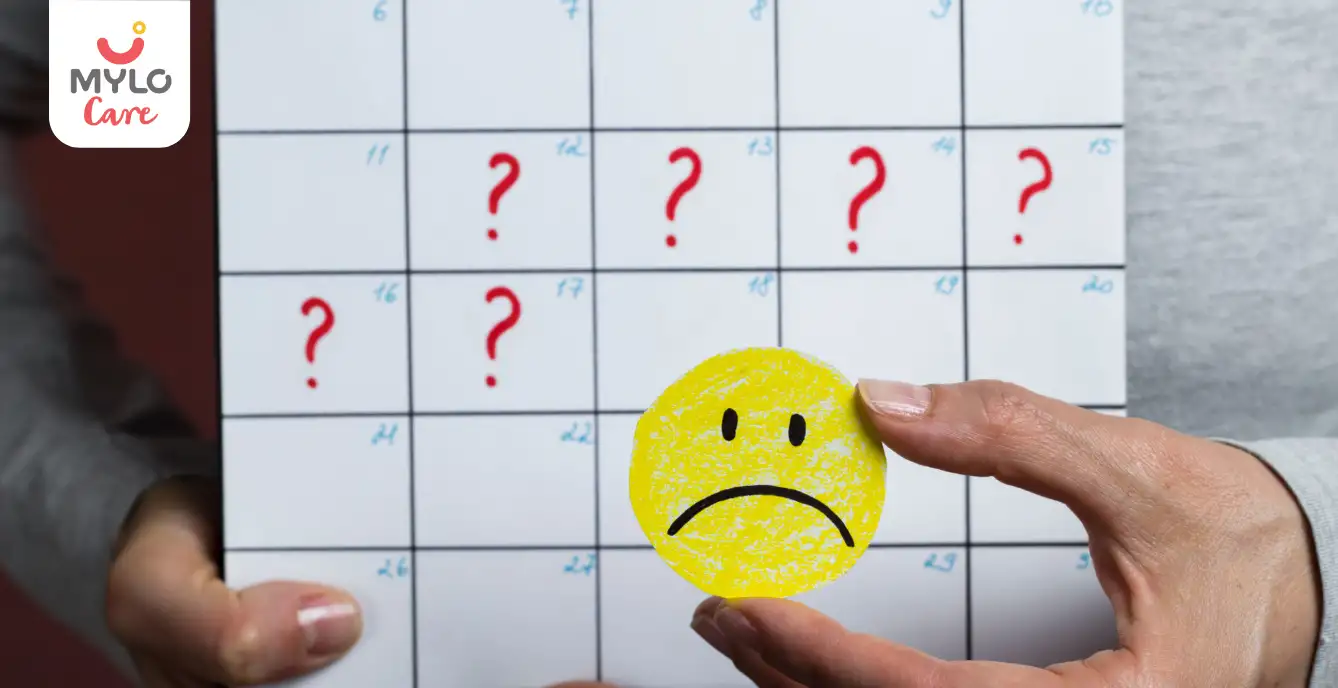
Periods
The Ultimate Guide to Understanding the Reasons for Late Period
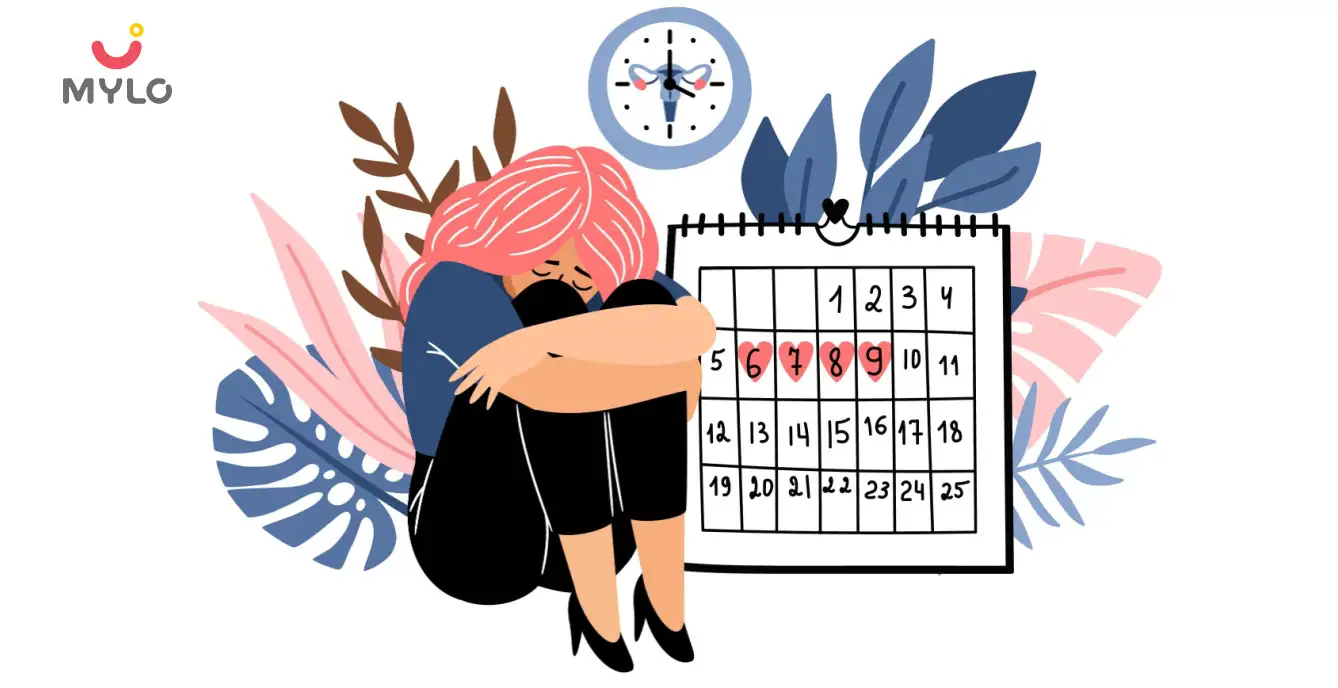
Menstrual Cycle
What Can Be the Maximum Delay in Periods If Not Pregnant?
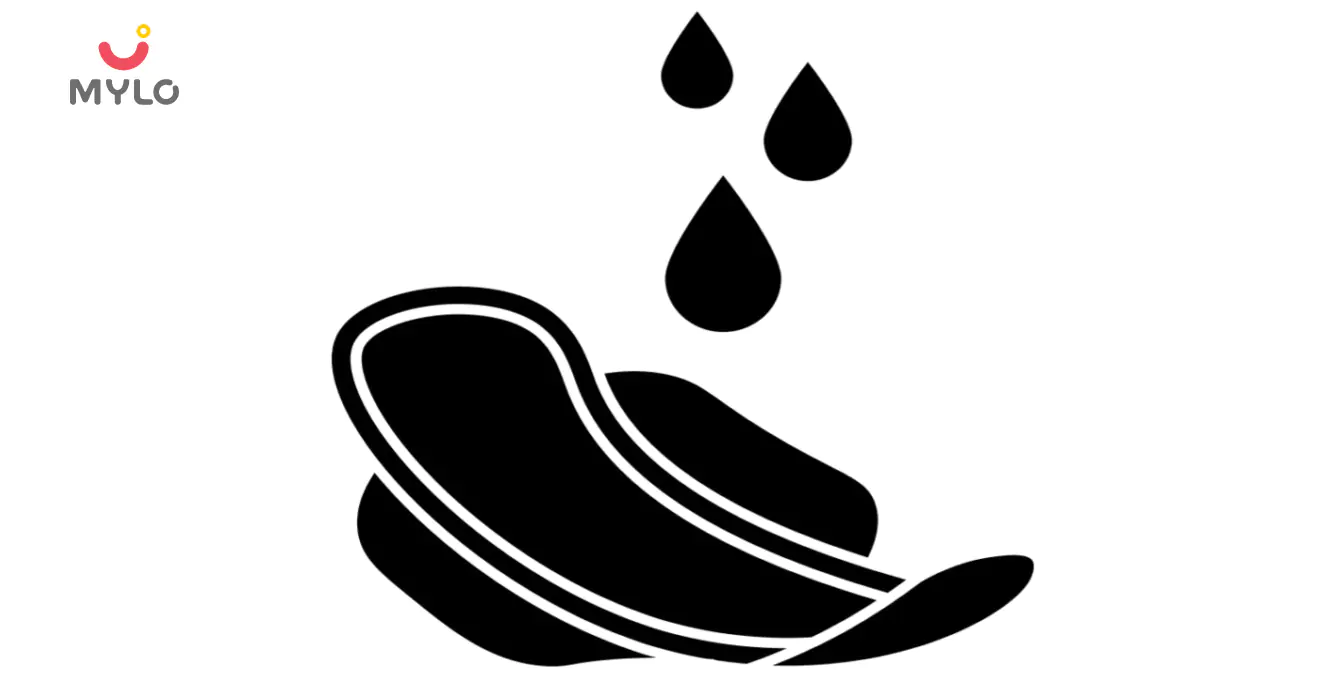
Black Period Blood: Is It Normal or a Cause for Concern?
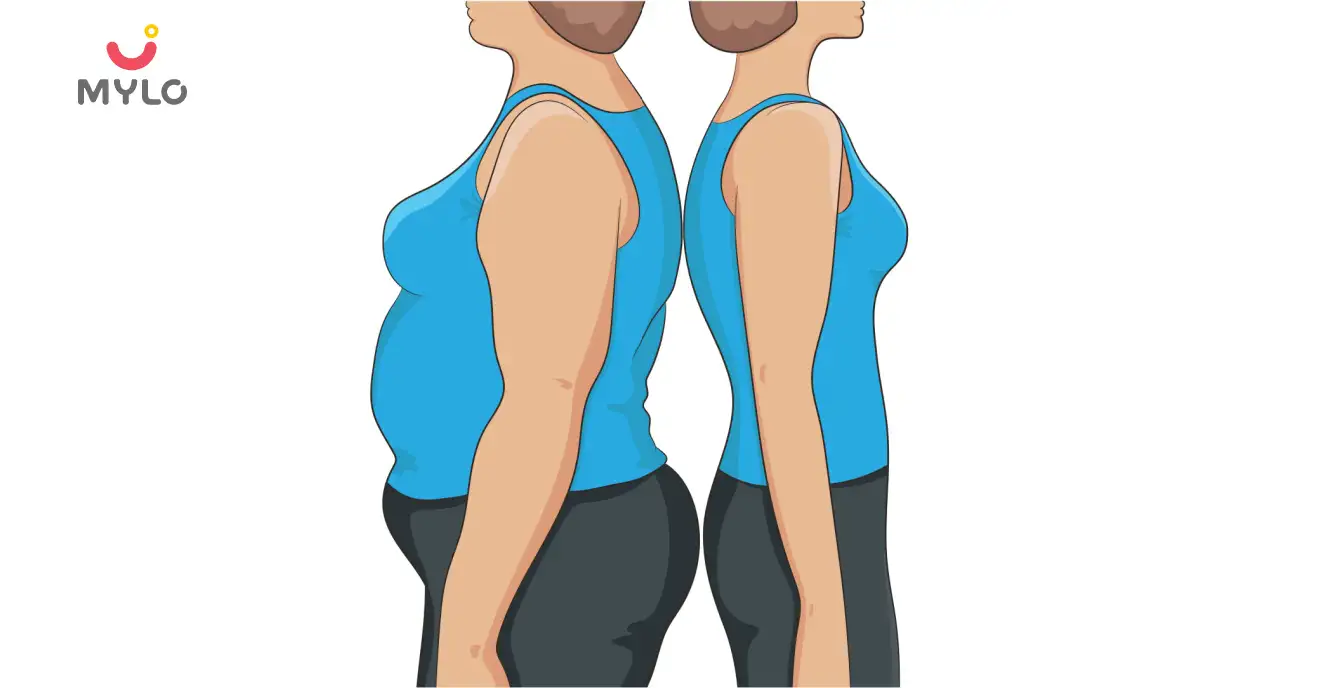
PCOS & PCOD
Lean PCOS: A Comprehensive Guide on Causes, Symptoms and Treatment

Mood Swings
PCOS Mood Swings: The Ultimate Guide to Causes and Strategies for Relief

PCOS & PCOD
PCOS and Thyroid: Understanding the Complex Relationship and Finding Solutions
- Intermittent Fasting & PCOS: The Ultimate Guide to Benefits, Risks and Precautions
- Insulin Resistance & PCOS: A Comprehensive Guide to Causes and Management
- Your heart stops beating when your baby feels breathless! Here are 5 things to know about infant breathlessness.
- Newborn Crying: What It Means and How to Handle It?
- When Do Babies Make Eye Contact: Keeping an Eye on Important Milestones
- Is your baby getting breathless frequently? Five things you must know
- 50 Budget-Friendly Birthday Return Gift Ideas to Wow Your Guests
- PCOS Exercise: Your Guide to Sweating Away PCOS
- PCOS and Pregnancy: How to Manage PCOS on the Path to Parenthood
- PCOS Tests: The Power of Diagnostic Tests in Your Health Journey
- Must-Read Ruskin Bond Short Stories for Little Minds
- The Top 10 Tenali Raman Stories You Must Read to Your Kids
- Ovulation Bleeding: The Ultimate Guide to Causes, Symptoms and Management
- A Guide to Recognizing Symptoms of Ovulation After HCG Injection


AWARDS AND RECOGNITION

Mylo wins Forbes D2C Disruptor award

Mylo wins The Economic Times Promising Brands 2022
AS SEEN IN

- Mylo Care: Effective and science-backed personal care and wellness solutions for a joyful you.
- Mylo Baby: Science-backed, gentle and effective personal care & hygiene range for your little one.
- Mylo Community: Trusted and empathetic community of 10mn+ parents and experts.
Product Categories
baby carrier | baby soap | baby wipes | stretch marks cream | baby cream | baby shampoo | baby massage oil | baby hair oil | stretch marks oil | baby body wash | baby powder | baby lotion | diaper rash cream | newborn diapers | teether | baby kajal | baby diapers | cloth diapers |




